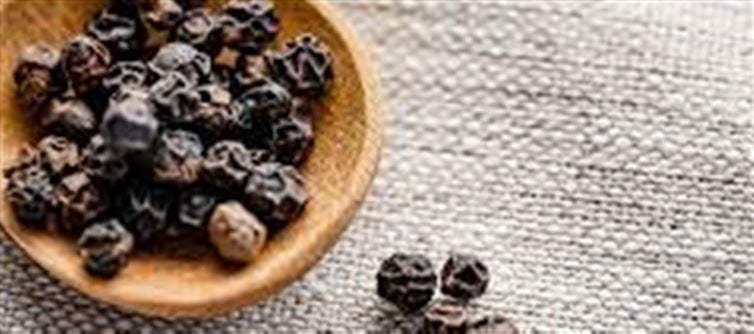
Overview
Picture this: you open your masala dabba (spice box) to sprinkle some black pepper on your soup or salad, but the familiar pungent aroma and kick never arrives. What you have might not be genuine black pepper.
With the rising cases of adulteration in spices, it’s important to know simple ways to verify the authenticity of your black pepper at home.
Why Fake Black Pepper is a Problem
· Health risks: Adulterated pepper may contain chalk, starch, or other fillers that are unsafe for consumption.
· Flavor loss: Fake pepper doesn’t provide the aromatic, spicy punch that real black pepper does.
· Cooking impact: Dishes lose their intended flavor and aroma.
Simple Kitchen Tests to Spot Fake Black Pepper
1. The Water Test
· Method:
1. Take a few peppercorns in a glass of water.
2. Let it sit for a few minutes.
· Observation:
o Real black pepper will float initially and then sink gradually.
o Fake pepper made with starch or other fillers may float unnaturally or dissolve.
2. The Bite Test
· Method:
1. Take a peppercorn and press or bite it.
· Observation:
o Real pepper is hard, dense, and releases a spicy aroma when crushed.
o Fake pepper is often soft, powdery, or tasteless.
3. The Flame Test
· Method:
1. Carefully hold a peppercorn over a small flame (e.g., candle) using tweezers.
· Observation:
o Real black pepper will smolder slowly and emit a characteristic aroma.
o Fake pepper may burn quickly or produce an unusual smell, indicating additives.
4. The Touch Test
· Method: Rub a peppercorn between your fingers.
· Observation:
o Real black pepper leaves a slightly oily residue due to natural essential oils.
o Fake pepper feels dry and chalky.
Tips for Buying Authentic Black Pepper
1. Look for whole peppercorns instead of pre-ground powders.
2. Check packaging: Choose sealed, labeled packs from trusted brands.
3. Smell before purchase: Authentic pepper has a strong, pungent aroma.
4. Avoid extremely cheap options: Price often reflects quality.
Conclusion
Authentic black pepper is more than a spice—it enhances flavor, aroma, and even health with antioxidants and piperine. By applying simple kitchen tests, you can ensure that what you’re adding to your dishes is genuine and safe.
Disclaimer:
The views and opinions expressed in this article are those of the author and do not necessarily reflect the official policy or position of any agency, organization, employer, or company. All information provided is for general informational purposes only. While every effort has been made to ensure accuracy, we make no representations or warranties of any kind, express or implied, about the completeness, reliability, or suitability of the information contained herein. Readers are advised to verify facts and seek professional advice where necessary. Any reliance placed on such information is strictly at the reader’s own risk..jpg)




 click and follow Indiaherald WhatsApp channel
click and follow Indiaherald WhatsApp channel